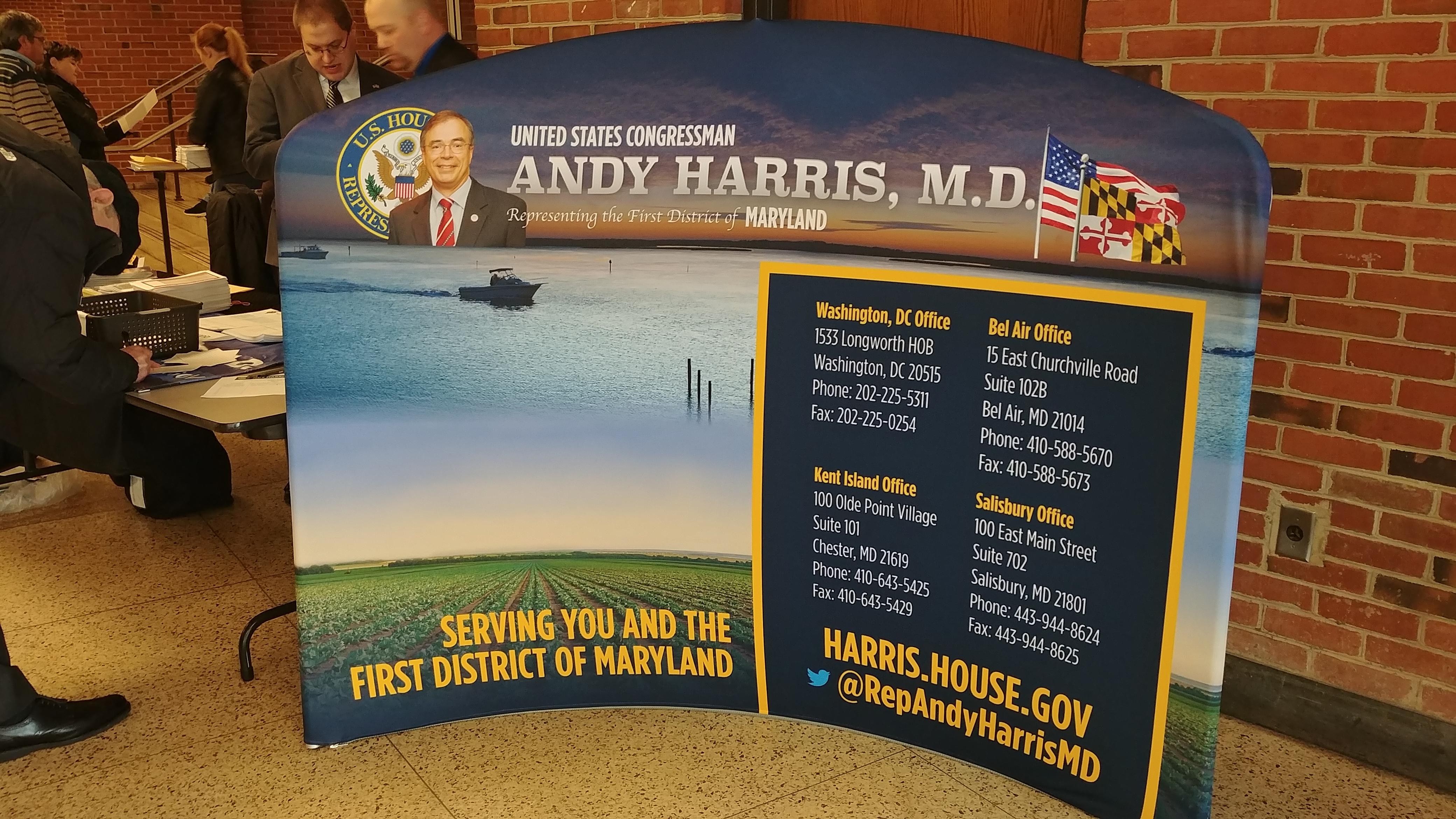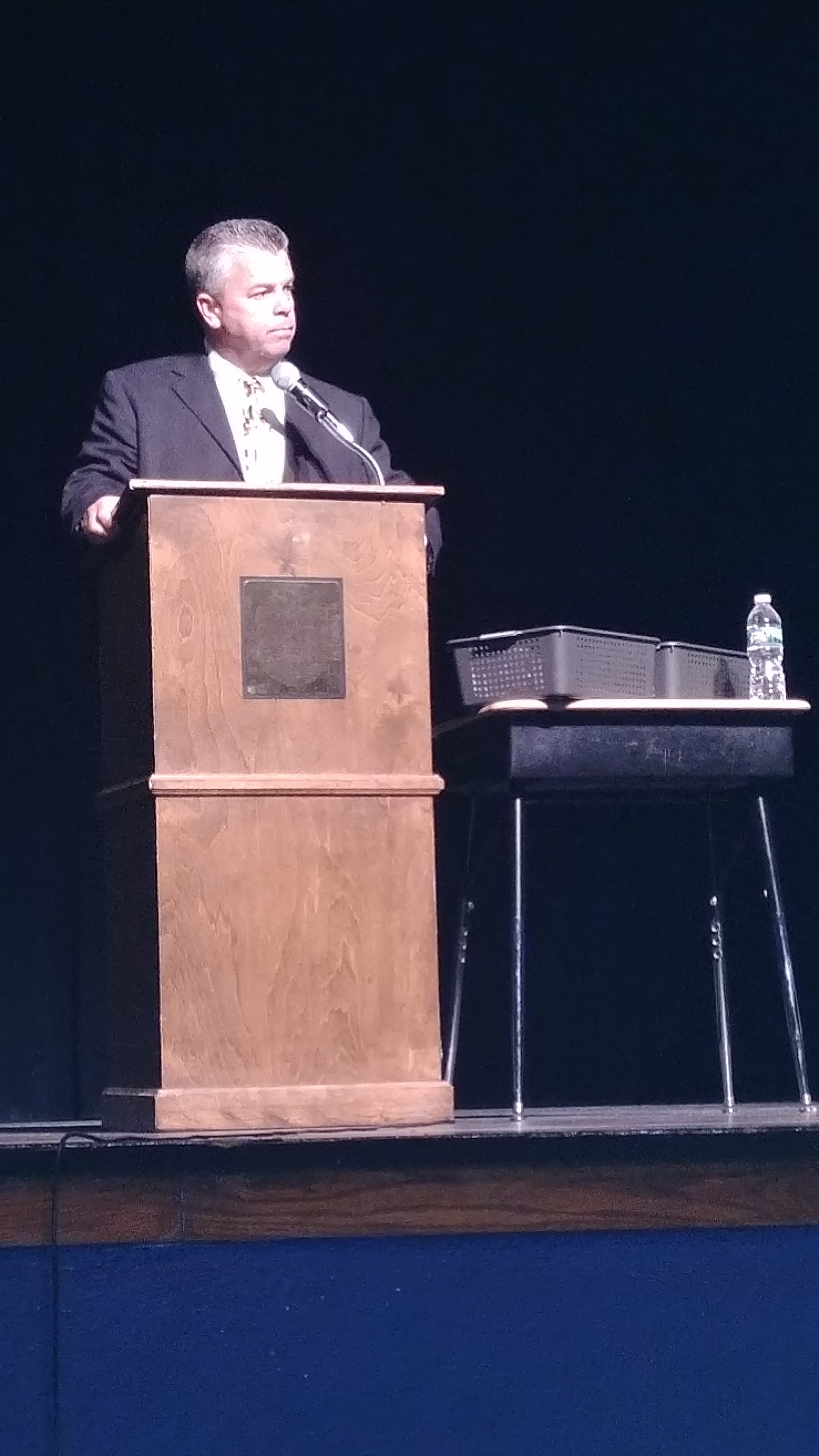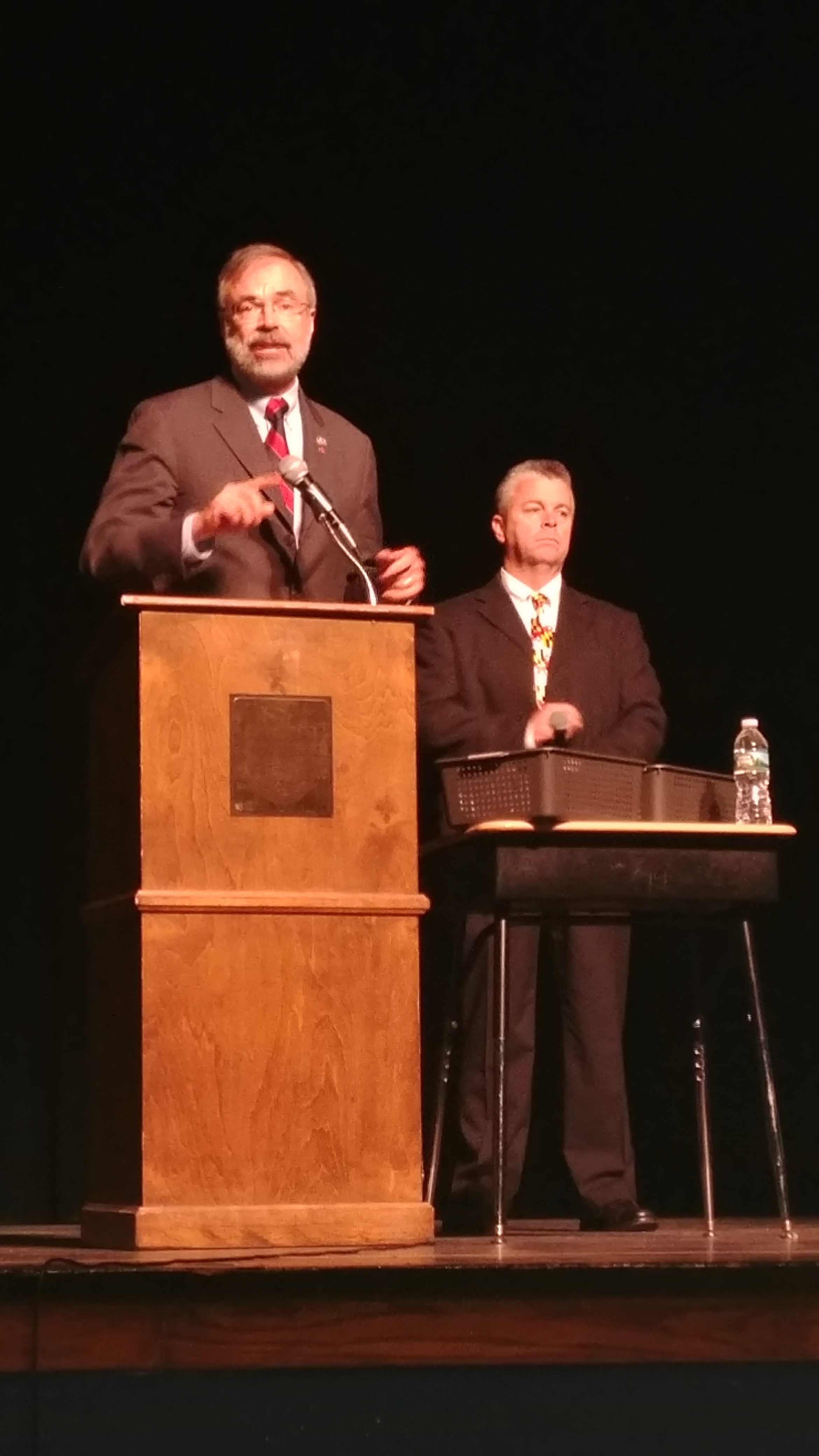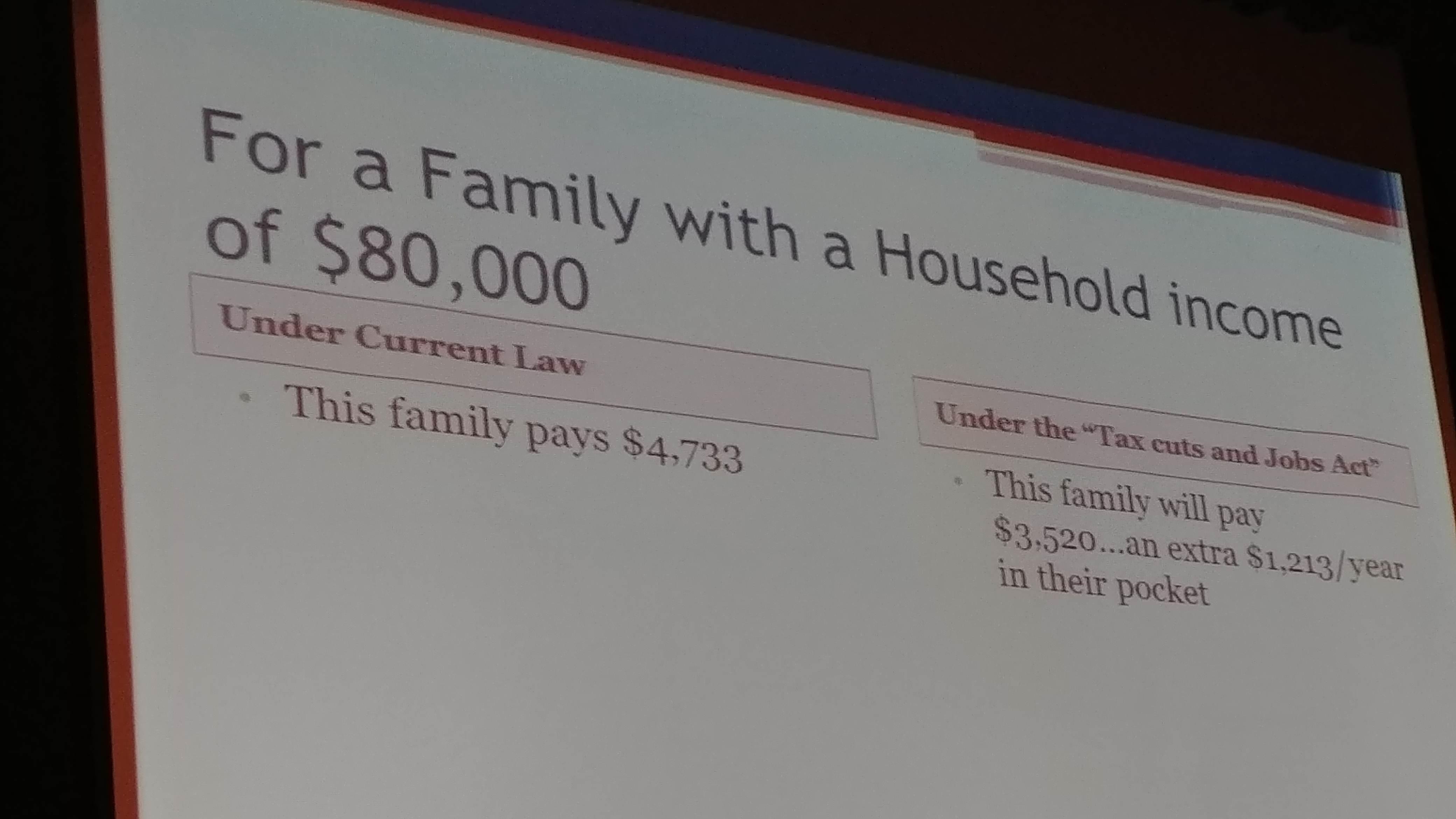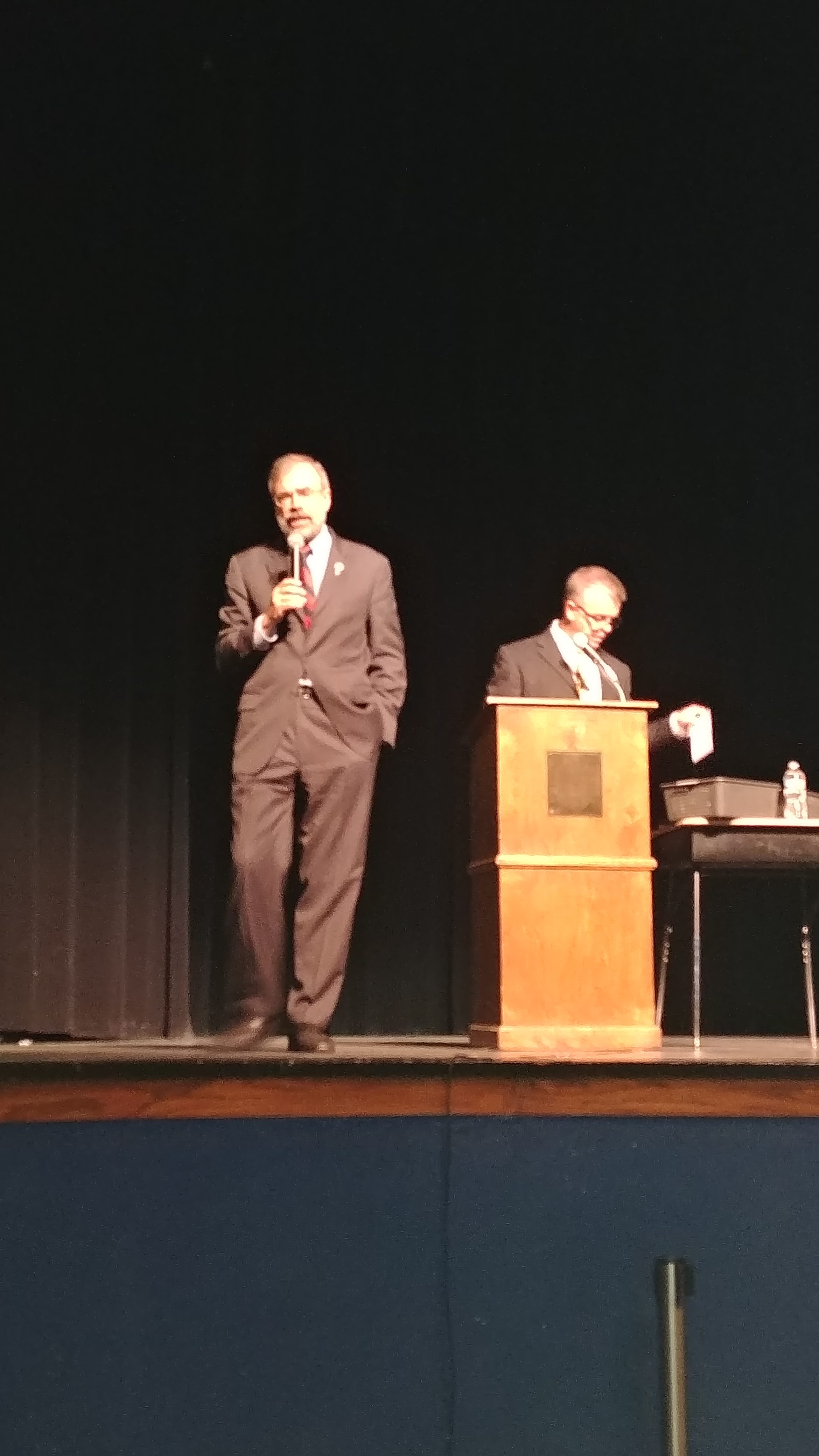In the spirit of “don’t let good writing go to waste,” this is a roundup of some of my recent social media comments. I’m one of those people who likes to take my free education to a number of left-leaning social media sites, so my readers may not see this.
My argument regarding federal workers from last week went on:
Seeing that I’ve had over two decades in the field and my industry isn’t one that’s “affected by automation and digitization” you may want to try again.
And I did not bring up Obamacare because no one really knew what it looked like at the time. It was just a sense that the economy was going to rebound very slowly, if at all. Having seen some of what O’Malley did over the previous two years and how it affected our local economy, people were bearish on prospects.
And you may want to ask our friend who was laid off in 2009 (above) why he blames his situation on Bush? He was out of office after January.
I’ll start the new stuff with some thoughts on infrastructure, in agreement with a trucker friend regarding the expansion of several highways across the bridge:
“You eliminate congestion by building more and separate roads. That is the only way.”
Very true. For example, imagine if the state had completed I-97 as envisioned to Richmond – then people may have used it as an alternate to I-95. The same would hold true if the feds, Maryland and Delaware would extend the current Delaware Route 1 corridor from I-95 to Dover as a badged spur of I-95 to Salisbury, providing a limited access, 70 mph link across Delaware,
Since many people consider U.S. 13 an alternate route to I-95 to avoid Baltmore and D.C. why not give them better options?
I’ve said this for years, and it still holds true: to succeed this area needs better infrastructure and access for goods to reach larger, more populated markets.
Yes, there was a big National Anthem controversy last Sunday. But my “boycott” of the NFL has been for the last several years because I agree the play has been awful (this coming from a coach.)
I’ve noticed that too. Obviously you can’t throw out the size and speed differences, but a team like the ’72 Dolphins or Lombardi-era Packers would mop up the floor with most of these teams because they played better fundamental football.
Another friend of mine contends that we shouldn’t boycott the NFL for the actions of a few. But if the economic juggernaut that is the NFL went away, there would still be college football, right? I’m not so sure:
Maybe this year, and the next. But as the issues with long-term brain damage percolate more and more, and the big money is no longer to be found at the end of the rainbow for the players, you may find in a decade or so that the college game will begin to wither, too. You’ll lose the FCS and small FBS schools first, but eventually we may be down to a small number of programs.
But the big rivalries like Michigan-Ohio State would go on, right?
Being from Toledo I know the importance of that rivalry. But if parents aren’t letting their kids play football for fear of long-term injury, the pool of talent necessarily will shrink. Unlike other sports, football doesn’t seem to have a foreign pipeline of talent to choose from.
Turning to a more local protest, who knew that chalk could be so controversial?
It’s chalk. People chalk up the sidewalks at 3rd Friday and no one bats an eye. Unfortunately, since there’s no real chance of rain in the forecast some county employee had to take a half-hour to hose it off.
I have some photos that may make for a good post later this week, so stay tuned.
Yet the protests ignore larger local issues, such as job creation, as a letter to the local newspaper pointed out in a backhanded way. But I don’t.
Unfortunately, right now (gas station and convenience store jobs are) where the market is. And while we have a governor who seems to be interested in bringing good-paying jobs – jobs that add value to commodities, not just the same semi-skilled positions we already have too many of – our legislature seems uninterested in assisting him because they cater to the REAL state industry – serving the federal government.
But the best way to stay out of poverty is following rules in this order: finish school, find a job, get married, then have children, Too many people do these things in the wrong order (particularly the last one) and end up working low-wage dead-end jobs.
Now someone did note that the best way to stay out of poverty is for all to work and not have kids, but if everyone did that we’d be extinct in a century or less. So that’s not realistic.
In a similar vein, I had to help a gubernatorial candidate understand things, too.
So look at the map of Maryland. The area around Washington, D.C. is light blue and green while the western panhandle and Eastern Shore are varying shades of orange. But this is deceptive in a way because median income around Washington is so high that it pulls the average way up and makes this area look worse by comparison.
Then consider the current and previous sources of wealth for various regions of the state: in the western panhandle it used to be coal and could have been natural gas had Governor Hogan not been shortsighted enough to ban fracking, which could have increased their score.
As you get closer to Washington, the source of wealth is the American taxpayer, either directly via working for the federal government or indirectly as many companies headquarter there to be closer to that taxpayer-provided manna.
The Baltimore area used to be industrial, but those jobs went away and now they are heavily into services, Some jobs are good and some menial, but too many have no jobs.
Finally, in a crescent around from Carroll County through the Eastern Shore, agriculture is heavy and in our area chicken is king. We have a share of the tourist dollar in season, but the backbone is agriculture.
People who talk about one Maryland are all wet, in my humble opinion.
But it also makes things deceptive in terms of “prosperity.” One can live on the median salary rather well here because housing is inexpensive but struggle mightily in the urban areas where rent is twice as high.
I agree there should be more of a focus on vocational education, though. Not everyone is college material – and I don’t say that in a bad way. Many youth have abilities that won’t reflect on the ACT but will reflect in the real world.
See, I’m bipartisan and can find common ground with people like Alec Ross. It’s hard with some others though. Take tax reform for example.
You know, when I read Democratic Whip Steny Hoyer (or pretty much any Democrat, for that matter) talking about taxes it bring to mind the old Beatles song:
“Should five percent appear too small/Be thankful I don’t take it all.”
I remember old Bill Clinton telling us he worked so hard but couldn’t give us a middle class tax cut. But Bush did.
Here, read this and educate yourselves. This is one I can’t claim.
Yet when Andy Harris discusses it, I find a lot of misinformed people who love taxes come out of the woodwork. This one whined about the 10% bracket becoming 12% as a tax on the poor, but leaving out one key fact:
What Ben Frey forgot to mention is that the standard deduction will practically double. So if you had a taxable income of $18,650 as a married couple (the top of the 10% bracket) would you rather pay 10% of that or 12% of $7,350 with the much larger standard deduction ($24,000 vs. $12,700)?
Wanna try again?
Then I added:
Here’s the plan in a nutshell. Yes, it’s more vague than I would prefer but you need to have a starting point and you can make your own decision on it.
Admittedly, Cheryl Everman (a former candidate herself and longtime lefty in these parts) came up with the point that the individual exemption goes as well – and that the plan as presented doesn’t get specific about the child care credit. It’s true, but the plan could still result in savings.
The one weakness with this “family of 4” line of argument is that we don’t know what the child tax credit will be nor the changes to the EITC as they may apply. So your mileage may vary.
But to address the initial argument, the married couple would still benefit because the two individual exemptions only equal $8,100 while the additional standard deduction is $11,300. In other words, they could make more gross income. So instead of creeping into the low end of the 15% bracket, they would fall into the 12% bracket.
And when someone asked for taxpayer input on the new tax code, I gave her mine:
Okay, here’s my rewrite of the tax code:
Sixteenth Amendment: repealed.
Backup withholding: eliminated.
Consumption tax: enacted.
Federal government: rightsized.
Oh, did that lady whine! She got on this whole tangent about paying for stuff, so I had to play bad cop.
Spare me. You obviously have little understanding of the proper role of the various levels (federal, state, and local) of government.
Please avail yourself to two resources: the Constitution, which spells out the role and functions of the federal government, paying particular attention to Article 1, Section 8 and the Ninth and Tenth Amendments, and the FairTax book, which advocates for a consumption-based tax system as opposed to income-based.
If you get the concepts spelled out therein, you will understand perfectly my succinct answer to the “rewrite of the tax code” question.
The conversation also turned back to health care:
Employers pass the increases in premium along to their employees by increasing their share of the cost.
Those “subsidies” don’t come out of thin air either, because somewhere along the line our taxes will have to edge up to pay for them.
And that “sabotage” you pin on Republicans is thwarting a bailout to the insurance companies. The “risk corridor” concept was fatally flawed to begin with because it assumed the market would be a net equal when instead more and more people demand “free stuff.”
It sounds to me like you just want us to submit to having the government pay for everything, forgetting that the government gets its money from all of us. What was so wrong with fee-for-service anyway?
Give us single-payer and taxes will have to go so high that we will be in a real-life “Atlas Shrugged” although I fear we’re not far from there anyway. (You seem like the type that needs to broaden her horizons and read that book.)
Our Senator Chris Van Hollen joined in the “tax cuts for the rich” budget fun, too.
Let me hit you with this then: if we had a corporate tax rate of zero we would only have a roughly $420 billion budget hole to fill. Why not cut the tax rate and see if it increases revenue because businesses may be inclined to expand if they could keep more of what they make?
Personally I couldn’t care less if the Waltons get a $52 billion tax break because their ancestors took the risk in starting a department store. (If you don’t think it’s a risk, consider how many have failed in the last 30 years.) So whether we have the highest business tax in the world or not, ask yourself how much risk is the government taking by sticking their hand into corporate pockets?
And as for those who argue over whether debt is a Republican or Democrat problem: look in the mirror. The fact is we couldn’t tax our way out of debt given current spending levels without significantly increasing taxes on everyone, and I mean everyone.
If you really want low taxes and a balanced budget, you pretty much have one option: sunset Medicare, Medicaid, Social Security, and Obamacare. Just ask the CBO (page 10 here):
“Today, spending on Social Security and the major health care programs constitutes 54 percent of all federal noninterest spending, more than the average of 37 percent over the past 50 years. If current laws generally stayed the same, that figure would increase to 67 percent by 2047.”
We already have a steeply progressive tax system, so the dirty little secret is that those like Chris Van Hollen are doing their best to make the middle class the lower class and certain elites even more prosperous.
Finally, I promised you last week I’d go into my interaction with a Congressional candidate. One of the Democrat opponents of Andy Harris, Allison Galbraith, was up in arms about the replacement of rules established by a 2011 “Dear Colleague” letter by Secretary of Education Betsy DeVos. Now, I’m probably more in tune with the subject than 99% of the population because I’ve written about it several times in the Patriot Post, and the DeVos change was the most recent. So maybe she was sandbagged a bit, but someone has to set people straight.
There were a couple serious flaws in the 2011 “Dear Colleague” letter. First of all was lowering the standard of proof to preponderance of evidence from clear and convincing evidence. Second was the restriction in practice for the accused to be able to cross-examine witnesses and in some cases not even know what he was accused of until the time of hearing. (It was also based on a faulty premise of 1 in 5 campus females being victims of sexual assault, which simply doesn’t jibe with crime statistics. But as Betsy DeVos said, one victim is too many. So is one person denied due process.) This is why groups like the American Association of University Professors and American College of Trial Lawyers were urging the rules be revoked.
The biggest problem with the approach in place now is that the maximum punishment for someone who actually raped a co-ed would be expulsion from school, but he could still be loose to commit more rapes.
And while the 2011 “Dear Colleague” letter was rescinded, the order specifically states we revert to the previous guidance as a temporary measure while new rules are formulated with input from multiple stakeholders.
When she disputed my dismissal of the “1 in 5” claim I came back.
This is for the education of those reading this thread then. These are the actual numbers as reported by the Justice Department. Bear in mind that 1 in 5 of 1,000 would be 200.
I agree the numbers should be zero, but I also contend that those who are accused should have due process that was missing under the Obama rules. That aspect was important enough that they had to be rescinded – which also should cut down on the hundreds of lawsuits falsely accused people have filed against these schools because of their shoddy practices as prescribed in 2011.
She alerted me to an appendix in the work – which I was aware of – so I had to add a little more.
I did look at that…again, we are talking a variation of 7x here between the reported numbers and “1 in 5” statement.. Biggest flaw in the NISVS is the low response rate, which would be affected by the bias of a person that’s affected being more likely to respond – this may account for a significant part of the difference.
I think Secretary DeVos will come up with fair rules that take all sides into account. It’s also worth noting that some school administrators have announced will continue with the 2011 rules despite the new guidance.
It sounds to me like Allison’s had some experience on this, and I have not – so my response is not as emotional. But the contention, to me, is this: the Obama-era rules gave credence to victims but not the accused and oftentimes those who determined the fate of the accused did so on the barest preponderance of evidence at a “trial” which was more of a one-sided affair. New rules should account for both, or perhaps move the venue to one that’s more proper: a court of law, where there are advocates for victims who are sensitive to their plight and protections for the accused.
A charge of rape is a serious charge, not to be taken lightly. Often at stake is the very continuance of a young man’s education (and let’s face it, the accused is almost always a man.) But if the person is an actual rapist, wouldn’t it be better to get him off the street than just off some college campus, enabling him to victimize someone else?
I had a busy week on the commenting front, so maybe I’ll slow down – or maybe not. As Walter E. Williams would say, I’m pushing back the frontiers of ignorance on social media.


